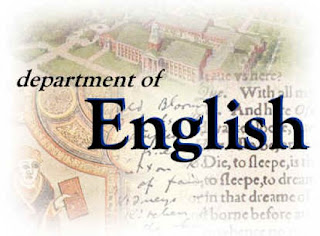Parts of speech হলো ইংরেজি ব্যাকরণের মৌলিক উপাদান, যা শব্দকে তাদের বাক্যে ব্যবহারের ভিত্তিতে শ্রেণিবদ্ধ করে। Noun (বিশেষ্য) হলো ব্যক্তি, স্থান, বস্তু বা ধারণার নাম, যেমন “teacher,” “city,” বা “happiness”। Pronoun (সর্বনাম) বিশেষ্যের পুনরাবৃত্তি এড়াতে ব্যবহৃত হয়, যেমন “he,” “she,” বা “they”। Verb (ক্রিয়া) কোনো কাজ বা অবস্থাকে প্রকাশ করে, যেমন “run,” “think,” বা “is”। Adjective (বিশেষণ) বিশেষ্যকে বর্ণনা করে, যেমন “beautiful,” “tall,” বা “red”। Adverb (ক্রিয়া বিশেষণ) ক্রিয়া, বিশেষণ বা অন্য ক্রিয়া বিশেষণকে পরিবর্তন করে এবং সাধারণত “কিভাবে,” “কখন,” বা “কোথায়” প্রশ্নের উত্তর দেয়, যেমন “quickly,” “yesterday,” বা “very”। Preposition (অব্যয়) বাক্যে শব্দগুলোর মধ্যে সম্পর্ক নির্দেশ করে, যেমন “in,” “on,” বা “under”। Conjunction (সংযোজক অব্যয়) শব্দ বা বাক্যকে সংযুক্ত করে, যেমন “and,” “but,” বা “because”। Interjection (আবেগসূচক শব্দ) আকস্মিক আবেগ প্রকাশ করে, যেমন “Wow!” বা “Oops!”।
Short Story:
Rina (noun) woke up (verb) early (adverb) in the morning (preposition phrase). She (pronoun) quickly (adverb) got ready and went to school (verb). The big (adjective) playground was empty (adjective), so she played happily (adverb). While playing, she found a beautiful (adjective) butterfly (noun) under (preposition) a tree (noun). “Wow! (interjection) It’s so colorful! (adjective)” she said excitedly (adverb). She took the butterfly and kept it carefully (adverb) in her book (noun) because (conjunction) she wanted to show it to her teacher (noun).
Parts of Speech (পদ প্রকরণ) – বিস্তারিত ব্যাকরণ নোট
🔹 Parts of Speech কী?
বাক্যে ব্যবহৃত প্রত্যেকটি অর্থবোধক শব্দ বা পদ এক একটি parts of speech.
Parts of Speech হল শব্দের শ্রেণিবিন্যাস, যা শব্দের বাক্যে ব্যবহারের ধরন অনুযায়ী বিভক্ত করা হয়। ইংরেজিতে মূলত ৮টি Parts of Speech রয়েছে:
- Noun (বিশেষ্য)
- Pronoun (সর্বনাম)
- Verb (ক্রিয়া)
- Adjective (বিশেষণ)
- Adverb (ক্রিয়া বিশেষণ)
- Preposition (পদান্বয়ী অব্যয়)
- Conjunction (সংযোজক অব্যয়)
- Interjection (আবেগসূচক অব্যয়)
🔹 ১. Noun (বিশেষ্য)
➡ Noun হল এমন শব্দ যা কোনো ব্যক্তি, বস্তু, স্থান, প্রাণী, ধারণা বা অবস্থাকে বোঝায়।
🔸 Noun-এর প্রকারভেদ
- Proper Noun (ব্যক্তিনাম বিশেষ্য) → নির্দিষ্ট ব্যক্তি, স্থান বা বস্তু বোঝায়।
- Example: Dhaka, Rahim, Amazon
- Common Noun (জাতিবাচক বিশেষ্য) → কোনো নির্দিষ্ট ব্যক্তি বা বস্তুর নাম বোঝায় না, বরং সাধারণ শ্রেণি বোঝায়।
- Example: city, boy, book
- Abstract Noun (গুণবাচক বিশেষ্য) → অনুভূতি, ধারণা বা অবস্থা বোঝায়।
- Example: happiness, bravery, love
- Collective Noun (সমষ্টিবাচক বিশেষ্য) → কোনো গোষ্ঠী বা দলের নাম বোঝায়।
- Example: team, class, family
- Material Noun (দ্রব্যবাচক বিশেষ্য) → কোনো পদার্থ বা বস্তু বোঝায়।
- Example: gold, water, air
✅ Example Sentences:
- Rahim is a good boy. (Proper Noun)
- A class of students visited the museum. (Collective Noun)
- Honesty is the best policy. (Abstract Noun)
🔹 ২. Pronoun (সর্বনাম)
➡ Pronoun হল এমন শব্দ যা Noun-এর পরিবর্তে ব্যবহৃত হয়।
🔸 Pronoun-এর প্রকারভেদ
- Personal Pronoun (ব্যক্তিগত সর্বনাম) → ব্যক্তি বোঝায়।
- Example: I, you, he, she, it, we, they
- Possessive Pronoun (অধিকারসূচক সর্বনাম) → মালিকানা বোঝায়।
- Example: mine, yours, his, hers, ours, theirs
- Reflexive Pronoun (নিঃসংশয় সর্বনাম) → নিজেকে বোঝায়।
- Example: myself, yourself, himself
- Demonstrative Pronoun (নির্দেশক সর্বনাম) → নির্দিষ্ট ব্যক্তি বা বস্তু নির্দেশ করে।
- Example: this, that, these, those
- Interrogative Pronoun (প্রশ্নবাচক সর্বনাম) → প্রশ্ন করতে ব্যবহৃত হয়।
- Example: who, whom, whose, which, what
✅ Example Sentences:
- She is my best friend. (Personal Pronoun)
- This book is mine. (Possessive Pronoun)
- He did it himself. (Reflexive Pronoun)
🔹 ৩. Verb (ক্রিয়া)
➡ Verb হল এমন শব্দ যা কোনো কাজ, অবস্থা বা অবস্থান বোঝায়।
🔸 Verb-এর প্রকারভেদ
- Action Verb (কর্মবাচক ক্রিয়া) → কাজ বোঝায়।
- Example: run, eat, write
- Linking Verb (সংযোগকারী ক্রিয়া) → অবস্থা বোঝায়।
- Example: am, is, are, was, were
- Auxiliary Verb (সহায়ক ক্রিয়া) → অন্য ক্রিয়াকে সাহায্য করে।
- Example: have, do, can, may
- Transitive Verb (সকর্মক ক্রিয়া) → Object থাকে।
- Example: She writes a letter.
- Intransitive Verb (অকর্মক ক্রিয়া) → Object থাকে না।
- Example: He sleeps.
✅ Example Sentences:
- He plays football. (Action Verb)
- She is a doctor. (Linking Verb)
- They have completed their work. (Auxiliary Verb)
🔹 ৪. Adjective (বিশেষণ)
➡ Adjective হল এমন শব্দ যা Noun বা Pronoun-এর গুণ, পরিমাণ বা সংখ্যা প্রকাশ করে।
🔸 Adjective-এর প্রকারভেদ
- Descriptive Adjective → গুণ বোঝায়।
- Example: beautiful, intelligent
- Quantitative Adjective → পরিমাণ বোঝায়।
- Example: some, few, many
- Demonstrative Adjective → নির্দিষ্ট বস্তু নির্দেশ করে।
- Example: this, that, these
- Interrogative Adjective → প্রশ্ন করে।
- Example: which, what, whose
✅ Example Sentences:
- She is a brilliant student. (Descriptive Adjective)
- I have some money. (Quantitative Adjective)
🔹 ৫. Adverb (ক্রিয়া বিশেষণ)
➡ Adverb হল এমন শব্দ যা Verb, Adjective বা অন্য Adverb-এর গুণ প্রকাশ করে।
🔸 Adverb-এর প্রকারভেদ
- Adverb of Manner → কিভাবে কাজ হয়েছে?
- Example: slowly, quickly
- Adverb of Place → কোথায় কাজ হয়েছে?
- Example: here, there
- Adverb of Time → কখন কাজ হয়েছে?
- Example: now, yesterday
✅ Example Sentences:
- He runs quickly. (Manner)
- She was born here. (Place)
🔹 ৬. Preposition (পদান্বয়ী অব্যয়)
➡ Preposition হল এমন শব্দ যা Noun বা Pronoun-এর সাথে বাক্যের অন্যান্য অংশের সম্পর্ক স্থাপন করে।
✅ Example Sentences:
- The book is on the table.
- He is in the room.
🔹 ৭. Conjunction (সংযোজক অব্যয়)
➡ Conjunction হল এমন শব্দ যা দুটি শব্দ, বাক্যাংশ বা বাক্যকে যুক্ত করে।
✅ Example Sentences:
- I like tea and coffee.
- He was late, but he apologized.
🔹 ৮. Interjection (আবেগসূচক অব্যয়)
➡ Interjection হল এমন শব্দ যা আকস্মিক আবেগ প্রকাশ করে।
✅ Example Sentences:
- Wow! That’s amazing!
- Alas! He is no more.
🔹 উপসংহার
✔ Parts of Speech সঠিকভাবে জানা থাকলে Sentence Structure সহজে বোঝা যায়।
✔ ব্যাকরণগতভাবে শুদ্ধ বাক্য গঠনের জন্য প্রতিটি Parts of Speech-এর ভূমিকা গুরুত্বপূর্ণ।
✅ প্রাকটিসের জন্য:
- নিচের বাক্যগুলোর প্রতিটি শব্দ কোন Parts of Speech, তা নির্ণয় করুন।
- She runs very fast.
- They went to the market and bought some apples.
- Wow! What a beautiful place!
Parts of Speech বিষয়ক বিস্তারিত গ্রামার নোট
Parts of Speech (শব্দের প্রকার):
ইংরেজি ভাষায় শব্দগুলিকে তাদের কাজ ও ভূমিকার উপর ভিত্তি করে বিভিন্ন শ্রেণিতে ভাগ করা হয়। এই শ্রেণিগুলিকে Parts of Speech বলা হয়। ইংরেজিতে মোট ৮টি Parts of Speech রয়েছে। এগুলো হলো:
- Noun (বিশেষ্য)
- Pronoun (সর্বনাম)
- Verb (ক্রিয়া)
- Adjective (বিশেষণ)
- Adverb (ক্রিয়া-বিশেষণ)
- Preposition (পদান্বয়ী অব্যয়)
- Conjunction (সংযোজক অব্যয়)
- Interjection (আবেগসূচক অব্যয়)
1. Noun (বিশেষ্য):
সংজ্ঞা: Noun হলো এমন শব্দ যা ব্যক্তি, বস্তু, স্থান, প্রাণী, ধারণা, গুণ বা অবস্থা ইত্যাদির নাম বোঝায়।
প্রকারভেদ:
- Proper Noun (নামবাচক বিশেষ্য): নির্দিষ্ট ব্যক্তি, স্থান বা বস্তুর নাম।
উদাহরণ: Dhaka, Rahim, January. - Common Noun (জাতিবাচক বিশেষ্য): সাধারণ নাম।
উদাহরণ: city, boy, month. - Collective Noun (সমষ্টিবাচক বিশেষ্য): দল বা গোষ্ঠী বোঝায়।
উদাহরণ: team, class, flock. - Material Noun (বস্তুবাচক বিশেষ্য): পদার্থ বা উপাদানের নাম।
উদাহরণ: gold, water, wood. - Abstract Noun (ভাববাচক বিশেষ্য): গুণ, অবস্থা বা ধারণা বোঝায়।
উদাহরণ: honesty, happiness, freedom.
উদাহরণ:
- “Dhaka is a busy city.” (ঢাকা একটি ব্যস্ত শহর।)
- “Happiness is important.” (সুখ গুরুত্বপূর্ণ।)
2. Pronoun (সর্বনাম):
সংজ্ঞা: Pronoun হলো এমন শব্দ যা Noun এর পরিবর্তে ব্যবহৃত হয়।
প্রকারভেদ:
- Personal Pronoun (ব্যক্তিবাচক সর্বনাম): I, we, you, he, she, it, they.
- Possessive Pronoun (সম্বন্ধবাচক সর্বনাম): mine, ours, yours, his, hers, theirs.
- Reflexive Pronoun (আত্মবাচক সর্বনাম): myself, ourselves, yourself, himself, herself.
- Demonstrative Pronoun (নির্দেশক সর্বনাম): this, that, these, those.
- Relative Pronoun (সম্বন্ধসূচক সর্বনাম): who, whom, whose, which, that.
- Interrogative Pronoun (প্রশ্নবাচক সর্বনাম): who, whom, whose, which, what.
উদাহরণ:
- “She is my friend.” (সে আমার বন্ধু।)
- “This is my book.” (এটি আমার বই।)
3. Verb (ক্রিয়া):
সংজ্ঞা: Verb হলো এমন শব্দ যা কোনো কাজ, অবস্থা বা ঘটনা বোঝায়।
প্রকারভেদ:
- Action Verb (কর্মবাচক ক্রিয়া): কাজ বোঝায়।
উদাহরণ: run, eat, write. - Linking Verb (সংযোজক ক্রিয়া): Subject এবং Complement এর মধ্যে সংযোগ স্থাপন করে।
উদাহরণ: is, am, are, seem, become. - Auxiliary Verb (সাহায্যকারী ক্রিয়া): মূল Verb কে সাহায্য করে।
উদাহরণ: is, am, are, was, were, have, has, do, does.
উদাহরণ:
- “He runs fast.” (সে দ্রুত দৌড়ায়।)
- “She is a teacher.” (সে একজন শিক্ষিকা।)
4. Adjective (বিশেষণ):
সংজ্ঞা: Adjective হলো এমন শব্দ যা Noun বা Pronoun এর গুণ, অবস্থা বা সংখ্যা বোঝায়।
প্রকারভেদ:
- Descriptive Adjective (বর্ণনামূলক বিশেষণ): গুণ বোঝায়।
উদাহরণ: beautiful, tall, smart. - Quantitative Adjective (পরিমাণবাচক বিশেষণ): পরিমাণ বোঝায়।
উদাহরণ: some, many, few. - Numeral Adjective (সংখ্যাবাচক বিশেষণ): সংখ্যা বোঝায়।
উদাহরণ: one, two, first, second. - Demonstrative Adjective (নির্দেশক বিশেষণ): নির্দিষ্টতা বোঝায়।
উদাহরণ: this, that, these, those.
উদাহরণ:
- “She has a beautiful dress.” (তার একটি সুন্দর পোশাক আছে।)
- “I have two books.” (আমার দুটি বই আছে।)
5. Adverb (ক্রিয়া-বিশেষণ):
সংজ্ঞা: Adverb হলো এমন শব্দ যা Verb, Adjective বা অন্য Adverb কে modify করে।
প্রকারভেদ:
- Adverb of Time (সময়সূচক ক্রিয়া-বিশেষণ): when, now, then, soon.
- Adverb of Place (স্থানসূচক ক্রিয়া-বিশেষণ): here, there, everywhere.
- Adverb of Manner (পদ্ধতিসূচক ক্রিয়া-বিশেষণ): slowly, quickly, carefully.
- Adverb of Degree (পরিমাণসূচক ক্রিয়া-বিশেষণ): very, too, almost.
উদাহরণ:
- “He runs quickly.” (সে দ্রুত দৌড়ায়।)
- “She speaks very softly.” (সে খুব নরমভাবে কথা বলে।)
6. Preposition (পদান্বয়ী অব্যয়):
সংজ্ঞা: Preposition হলো এমন শব্দ যা Noun বা Pronoun এর সাথে অন্য শব্দের সম্পর্ক বোঝায়।
উদাহরণ:
- “The book is on the table.” (বইটি টেবিলের উপর আছে।)
- “She went to the market.” (সে বাজারে গিয়েছিল।)
7. Conjunction (সংযোজক অব্যয়):
সংজ্ঞা: Conjunction হলো এমন শব্দ যা শব্দ, বাক্য বা Clause কে যুক্ত করে।
প্রকারভেদ:
- Coordinating Conjunction: and, but, or, nor, for, so, yet.
- Subordinating Conjunction: because, although, if, when, since.
উদাহরণ:
- “She is smart and hardworking.” (সে চালাক এবং পরিশ্রমী।)
- “I will go if you come.” (আমি যাব যদি তুমি আসো।)
8. Interjection (আবেগসূচক অব্যয়):
সংজ্ঞা: Interjection হলো এমন শব্দ যা আকস্মিক আবেগ বা অনুভূতি প্রকাশ করে।
উদাহরণ:
- “Wow! What a beautiful view.” (ওয়াও! কি সুন্দর দৃশ্য।)
- “Oh no! I forgot my keys.” (ওহ না! আমি আমার চাবি ভুলে গেছি।)
Parts of Speech এর গুরুত্ব:
- বাক্য গঠনে Parts of Speech অপরিহার্য।
- শব্দের সঠিক ব্যবহার ও অর্থ প্রকাশে সাহায্য করে।
- ভাষার দক্ষতা বৃদ্ধি করে।
এই নোটটি Parts of Speech সম্পর্কে একটি সম্পূর্ণ ধারণা প্রদান করে। প্রতিটি Part of Speech এর সঠিক ব্যবহার ইংরেজি ভাষায় দক্ষতা অর্জনের জন্য অত্যন্ত গুরুত্বপূর্ণ।
| Word | Part of Speech |
| Rina | Noun |
| woke | Verb |
| up | Preposition |
| early | Adverb |
| morning | Noun |
| She | Pronoun |
| quickly | Adverb |
| got | Verb |
| ready | Adjective |
| went | Verb |
| school | Noun |
| big | Adjective |
| playground | Noun |
| was | Verb |
| empty | Adjective |
| so | Conjunction |
| played | Verb |
| happily | Adverb |
| While | Conjunction |
| playing | Verb |
| found | Verb |
| beautiful | Adjective |
| butterfly | Noun |
| under | Preposition |
| tree | Noun |
| Wow! | Interjection |
| It’s | Pronoun + Verb |
| colorful | Adjective |
| said | Verb |
| excitedly | Adverb |
| took | Verb |
| kept | Verb |
| carefully | Adverb |
| book | Noun |
| because | Conjunction |
| wanted | Verb |
| show | Verb |
| teacher | Noun |




